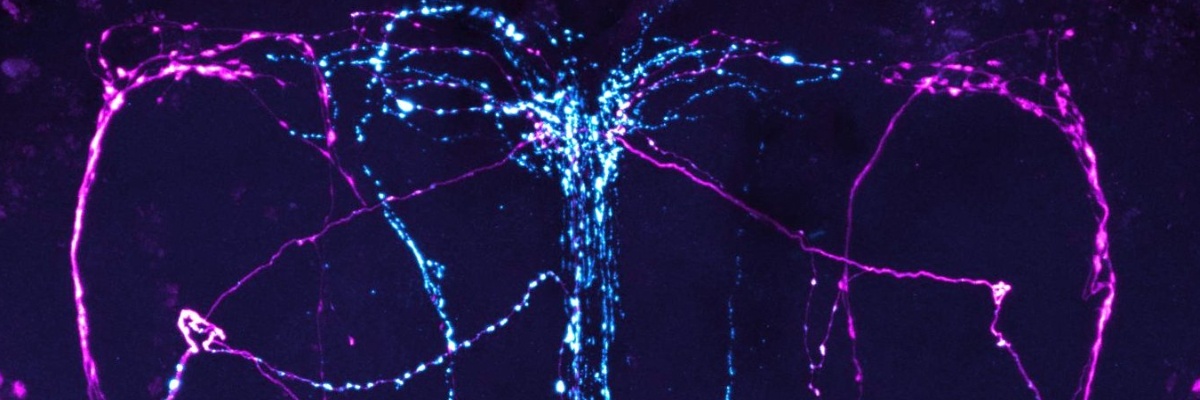Neurobiologists at Indiana University study how nervous systems develop, function, and give rise to behavior, spanning multiple levels of biological organization. Faculty in this area work in developmental, molecular, cellular, and behavioral neurobiology, using a wide range of experimental and comparative approaches. Our goal is to understand how neuronal circuits are formed, how they process information, and how their activity generates coordinated physiological and behavioral outputs. By integrating molecular genetics, cell biology, physiology, imaging, computational tools, and evolutionary analyses, neurobiologists at IU address fundamental questions about the mechanisms that govern brain function.
Neurobiology faculty hold affiliations in the Genome, Cell, and Developmental Biology (GCDB) and Evolution, Ecology, and Behavior (EEB) programs in Biology, reflecting the interdisciplinary nature of our research. Our research projects seek to advance understanding of conserved principles of neural function across species. Students can explore a variety of research opportunities that employ a diverse array of vertebrate and invertebrate study systems.
Faculty and students have access to multiple campus resources, including the Center for Genomics and Bioinformatics, the Center for the Integrative Study of Animal Behavior (CISAB), the Drosophila Genomics Resource Center, the Light Microscopy Imaging Center (LMIC), the Bloomington Drosophila Stock Center (BDSC) and the Electron Microscopy Center (EMC).

 The College of Arts
The College of Arts